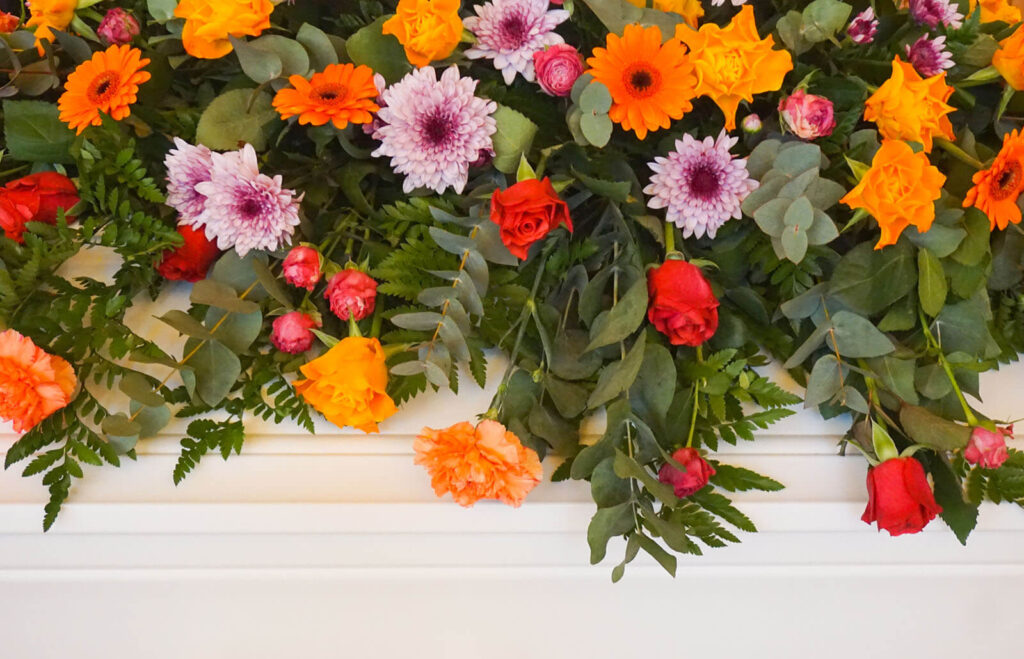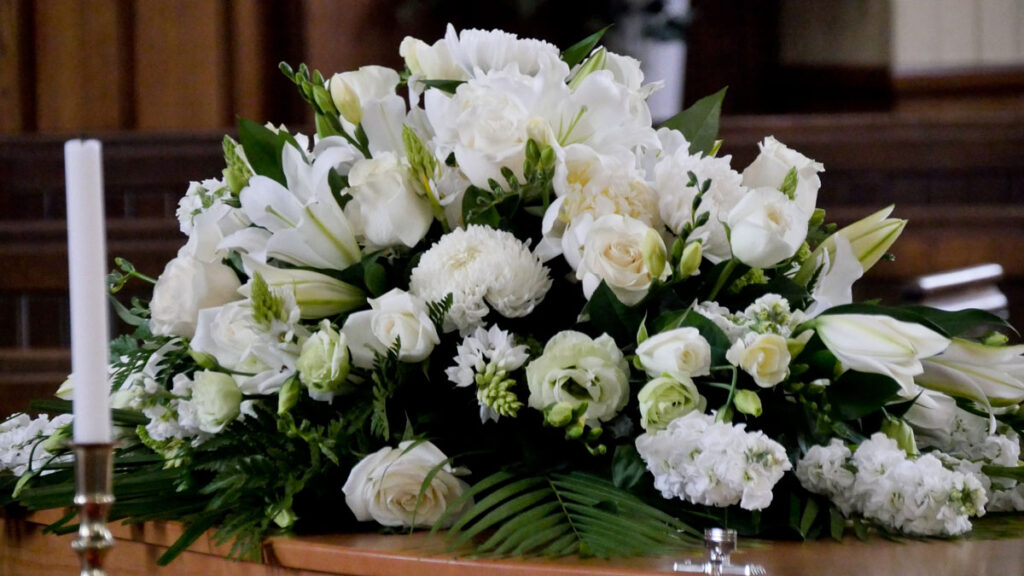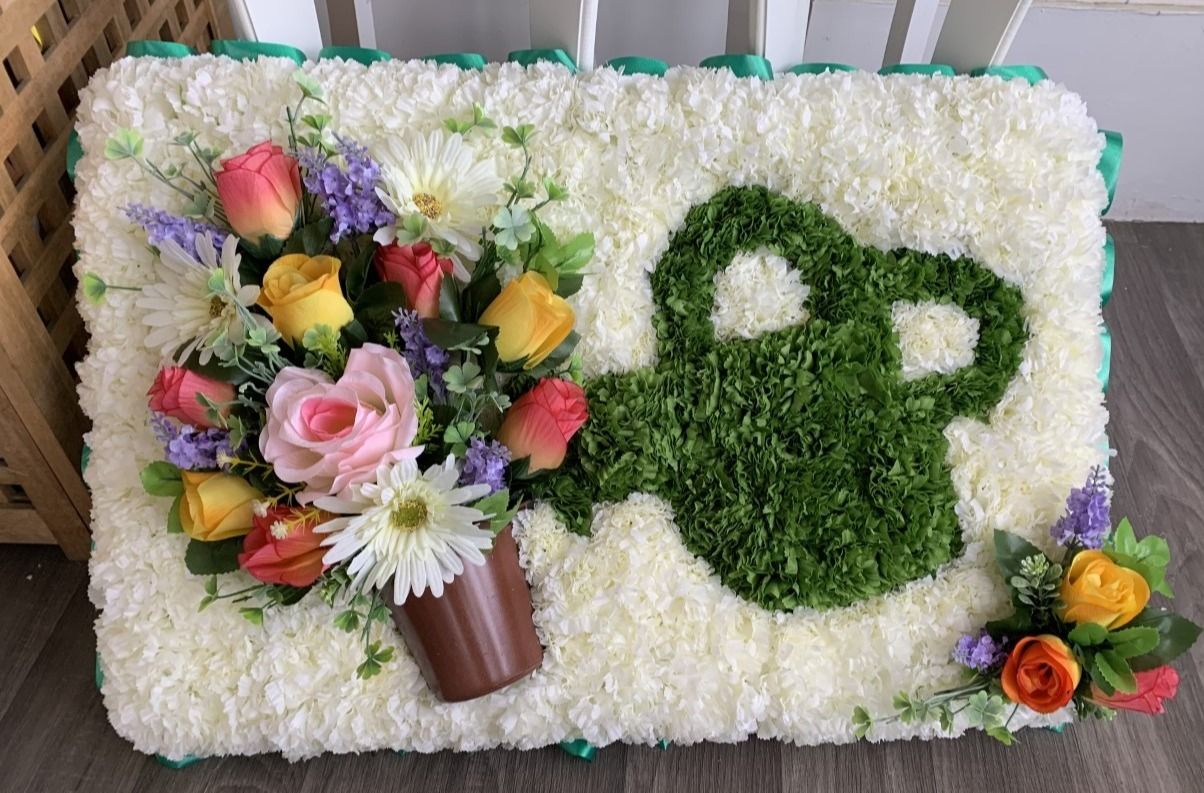Funerals are a time for expressing condolences and honoring the life of a loved one who has passed away. One way to convey emotions and pay tribute is through the use of flowers. Flowers have been an integral part of funeral rituals throughout history and across cultures. Each flower carries its own special meaning and symbolism, adding a deeper layer of sentiment to the mourning process.
Understanding the Symbolism of Flowers
Flowers have long been associated with various symbolic meanings. The language of flowers, also known as floriography, is a practice that dates back to the Victorian era. Funeral flowers delivered Sydney assigns specific meanings to different types of flowers, allowing individuals to convey their emotions through the choice of blooms.
Exploring the world of floral symbolism reveals a rich tapestry of meanings woven into the petals of each bloom. From the passionate red of a rose symbolizing love and desire to the delicate beauty of a cherry blossom representing the transient nature of life, flowers hold a myriad of meanings that have captivated hearts and minds for centuries. Click here for detail guide to choosing appropriate funeral flowers.
The Language of Flowers: A Brief History
The language of flowers has its roots in Turkey, where flowers were used to communicate messages silently during the Ottoman Empire. This practice gained popularity in Europe during the 19th century, particularly among the Victorian society. Floral dictionaries were published, providing guidance on the meanings associated with different flowers.
As the language of flowers bloomed across continents, it became a sophisticated form of non-verbal communication, allowing individuals to express sentiments that words alone could not capture. The intricate meanings assigned to each flower created a secret code that added depth and nuance to floral exchanges, whether in a romantic bouquet or a heartfelt condolence arrangement.
Cultural Interpretations of Flower Symbolism
While the language of flowers has common meanings across cultures, interpretations may vary in different parts of the world. For example, while white lilies symbolize purity and innocence in Western cultures, they are considered a symbol of death and mourning in some Asian cultures. Understanding these cultural nuances is essential when choosing funeral flowers.
Delving into the cultural interpretations of flower symbolism unveils a fascinating tapestry of beliefs and traditions that have evolved over centuries. Flowers not only convey emotions but also carry deep cultural significance, reflecting the values and beliefs of diverse societies around the globe. By understanding the diverse interpretations of flower symbolism, we gain a deeper appreciation for the universal language of beauty that transcends borders and connects us all.
Common Flowers at Funerals and Their Meanings
Several types of flowers are commonly used at funerals, chosen for their significance and symbolism. Let’s explore a few of the most popular choices:
Lilies and Their Significance
Lilies are often associated with purity and innocence, making them a popular choice for funerals. Their elegant blooms and gentle fragrance create a sense of tranquility and peace. White lilies, in particular, symbolize the soul’s restoration and the purity of the departed.
Moreover, lilies have a rich history in various cultures and religions. In Christianity, the Madonna Lily is a symbol of the Virgin Mary’s purity and motherly love. In Greek mythology, lilies are associated with the goddess Hera, representing rebirth and motherhood. This deep-rooted symbolism adds layers of meaning to the presence of lilies at a funeral, honoring the deceased with profound significance.

The Role of Roses in Mourning
Roses are timeless symbols of love and beauty. They are frequently used in funeral arrangements to express deep affection for the deceased. Red roses signify love and respect, while pink roses symbolize gratitude and admiration. White roses, similar to lilies, represent purity and innocence.
Furthermore, roses have been revered for centuries for their healing properties and captivating fragrance. In Victorian times, the language of flowers, or floriography, was used to convey emotions and sentiments through floral arrangements. Roses, with their diverse colors and meanings, played a crucial role in this intricate communication of feelings, making them a poignant choice for honoring a loved one’s memory.
Carnations and Their Funeral Symbolism
Carnations are versatile flowers that hold various meanings depending on their color. When used at funerals, white carnations symbolize pure love and innocence, while red carnations represent admiration and affection towards the departed.
Additionally, carnations have a long-standing association with love and fascination. In some cultures, they are believed to symbolize a mother’s undying love, making them a heartfelt choice for funeral arrangements to express eternal affection and remembrance. The delicate petals of carnations, coupled with their rich symbolism, offer a comforting presence at a time of mourning.
Choosing the Right Flowers for a Funeral
When selecting flowers for a funeral, it’s crucial to consider several factors that can guide your decision-making process:
Factors to Consider When Selecting Funeral Flowers
- Relationship with the deceased: Choose flowers that reflect the nature of your relationship with the departed.
- Religious and cultural traditions: Consider any specific flower preferences or restrictions dictated by religious or cultural customs.
- Personality and preferences of the deceased: Select flowers that align with the person’s taste and character, if known.
- Sentiment and symbolism: Opt for flowers that convey the emotions you wish to express.
- Budget and practicality: Take into account cost and availability when making your choice.
Personalizing Funeral Flowers: A Guide
Personalizing funeral flowers can make the tribute more meaningful and heartfelt. Consider incorporating the departed’s favorite flowers, colors, or even their hobbies or interests into the arrangements. Customized tributes can celebrate the unique life that was lived and provide comfort to the grieving family.
Moreover, when selecting funeral flowers, it’s essential to consider the seasonality of the blooms. Certain flowers may be more readily available and affordable during specific times of the year, while others may need to be imported, increasing their cost. Understanding the seasonal availability of flowers can help you make a practical choice that aligns with your budget and preferences.
Additionally, the arrangement and presentation of funeral flowers play a significant role in conveying your sentiments. Traditional options like wreaths, sprays, and casket sprays offer classic elegance, while more modern choices like floral letters or personalized shapes can add a unique touch to the tribute. The size, color scheme, and overall design of the floral arrangements should harmonize with the tone of the funeral service and reflect the personality of the departed.

The Impact of Flowers on the Grieving Process
Flowers have a profound impact on the grieving process, offering solace and support to those who have lost a loved one:
The Therapeutic Effect of Flowers
Research suggests that flowers have therapeutic properties that can alleviate grief and promote emotional well-being. The presence of flowers can evoke positive emotions, reduce anxiety, and contribute to a sense of healing and comfort during the mourning period.
Flowers as a Means of Expression in Grief
When words fail to convey the depth of sorrow, flowers can serve as a language of their own. They provide a tangible expression of sympathy and empathy, offering solace to the bereaved. Flowers also enable mourners to partake in a shared visual language, creating a sense of unity and understanding.
Furthermore, the act of selecting and arranging flowers for a funeral or memorial service can be a therapeutic process in itself. Choosing specific blooms or colors that hold personal significance can be a way for individuals to honor the memory of the deceased and find a sense of connection during a time of loss. The physical act of arranging flowers can also provide a meditative and calming experience, allowing individuals to focus their thoughts and emotions on creating a meaningful tribute.
The Symbolism of Different Flowers in Grief
Each type of flower carries its own symbolism and meaning, making the selection of blooms a deeply personal and thoughtful process. For example, lilies are often associated with purity and renewal, making them a common choice for funerals and memorials. Roses, with their diverse colors, can convey a range of emotions from love and admiration to sorrow and remembrance. Understanding the symbolism behind different flowers can help individuals choose arrangements that resonate with their feelings and intentions.
The Evolution of Funeral Flower Traditions
Funeral flower practices have evolved over time, reflecting changes in society and cultural norms:
Changes in Funeral Flower Practices Over Time
In the past, funeral flower arrangements were often grand and lavish, displaying abundance and wealth. These elaborate displays were meant to showcase the status and importance of the deceased individual and their family. Flowers were carefully selected not only for their beauty but also for their rarity and exoticism, symbolizing luxury and opulence.
However, contemporary funeral flower arrangements have embraced simplicity and understated elegance. This subtle shift reflects a desire for personalization and a focus on honoring the individual’s life rather than ostentatious displays. Modern funeral flower arrangements prioritize meaningful gestures over extravagant shows of wealth, with a focus on creating a serene and peaceful atmosphere for mourners to pay their respects.
Modern Trends in Funeral Flowers
Modern funeral flower arrangements have diversified to include unique and creative designs. From biodegradable floral tributes to personalized flower-shaped urns, there are now countless options available to capture the essence of the departed’s personality. These innovative trends allow for a more personalized and memorable farewell, where the choice of flowers and arrangement style can reflect the individuality and passions of the deceased.
Additionally, the use of technology has also influenced modern funeral flower practices. Online platforms now offer virtual flower arrangements and digital memorial gardens where friends and family can contribute from anywhere in the world. This digital presence allows for a global expression of condolences and support, breaking down physical barriers and ensuring that the memory of the departed lives on in a digital landscape.In conclusion, flowers play a significant role in the funeral rituals, providing comfort, support, and a means of expression during the grieving process. Understanding the symbolism behind different flowers, considering cultural and personal factors, and embracing the changing trends in funeral flower practices can help create meaningful and personalized tributes that honor the life of a loved one.

